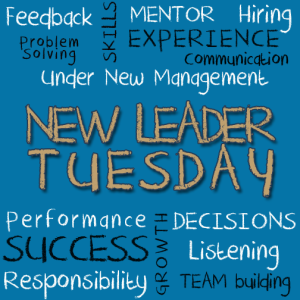 When it comes to sub-par performance on teams and between a supervisor and his or her department members, communication is almost always an issue, but rarely the root cause of the problem.
When it comes to sub-par performance on teams and between a supervisor and his or her department members, communication is almost always an issue, but rarely the root cause of the problem.
Your general practice doctor looks for obvious signs of a problem, including an abnormal temperature, issues with the sound of your lungs at work, high or low blood pressure and any of a dozen other markers that indicate something is off. Those signs are never the problem, but rather, they are symptoms of some underlying issue. The same goes for the oft-reported communication problems on teams or between a team leader or supervisor and the team members.
A senior manager observes performance issues or gets wind of team member dissatisfaction with a direct supervisor, and the assumption is to coach the supervisor through communications training. This knee-jerk reaction is noble, but often misguided.
The reality has more to do with issues of accountability, clear and shared goals and performance measures and the lack of a structured operating scheme. These items when ignored, much like good nutrition, adequate sleep and appropriate exercise, combine to imperil the performance and health of teams and their front-line leaders.
4 Ideas to Help Front-Line Managers Build Team Performance and Health:
1. Create Opportunities to Connect and Build Context as a Group. As simple as it sounds, creating a time to connect in groups on business and performance issues with front-line teams requires extraordinary effort. These groups are busy doing the heavy lifting on a daily basis and creating meeting time often requires carving time out that is otherwise dedicated to production, serving customers and keeping the business moving. As needed, budget for over-time, identify opportunities to momentarily shutdown or, arrange for the back-up help needed to buy you time to connect.
2. Build an Operating Routine with Your Team Leaders. While this sounds highly clinical, the Operating Routine is much about identifying and sharing key targets and discussing results and generating ideas for improvement. The front-line manager must work with his or her manager to understand company and departmental goals and performance measures and gain access to and agreement to share and discuss those measures. While the Operating Meetings might incorporate a subset of the overall team, encourage your team leads to share the topics, ideas and metrics with their teams.
3. Use Connectivity and Regularity to Promote Accountability. Many issues of accountability…or lack thereof, can be improved upon simply by ensuring that those accountable for initiatives and performance measures are in front of a court of their peers on a regular basis. One manager indicated that his team leads struggled to follow-up on his requests. While true, the issues got lost in the daily chaos and battle of the shop floor and meeting production goals, and weren’t as a result of ill-intent or particularly poor character. When he implemented a simple group session every two-weeks and let the team leads control the agenda, the peer pressure to make certain identified activities were completed ahead of the meeting was palpable and almost immediate.
4. Quit Telling and Start Asking. Front-line leaders are most often one step removed from doing and the old habits of successfully doing the work die hard. Shift your own focus from telling people what to do towards an approach of asking for their ideas. Your reaction is to describe how to fix a problem and the right thing to do is to begin asking people how they would fix the problem. And then let them do it. This simple shift in approach engenders trust and strengthens accountability. People in general are much more enthusiastic and responsible about following through on their own ideas versus taking orders.
The Bottom-Line for Now:
The lot of the front-line leader is a challenging one. There’s little preparation and support for most of us when moving from contributor and doer to team leader. While communication issues are always present with group performance problems, senior managers will be well-served to help attack the underlying causes by supporting their front-line leaders in creating the venues, context, measures and habits necessary to drive improvement.
—
More Professional Development Reads from Art Petty:
Don’t miss the next Leadership Caffeine-Newsletter! Register here
For more ideas on professional development-one sound bite at a time, check out Art’s latest book: Leadership Caffeine-Ideas to Energize Your Professional Development.
New to leading or responsible for first time leader’s on your team? Subscribe to Art’s New Leader’s e-News.
 An ideal book for anyone starting out in leadership: Practical Lessons in Leadership by Art Petty and Rich Petro.
An ideal book for anyone starting out in leadership: Practical Lessons in Leadership by Art Petty and Rich Petro.
